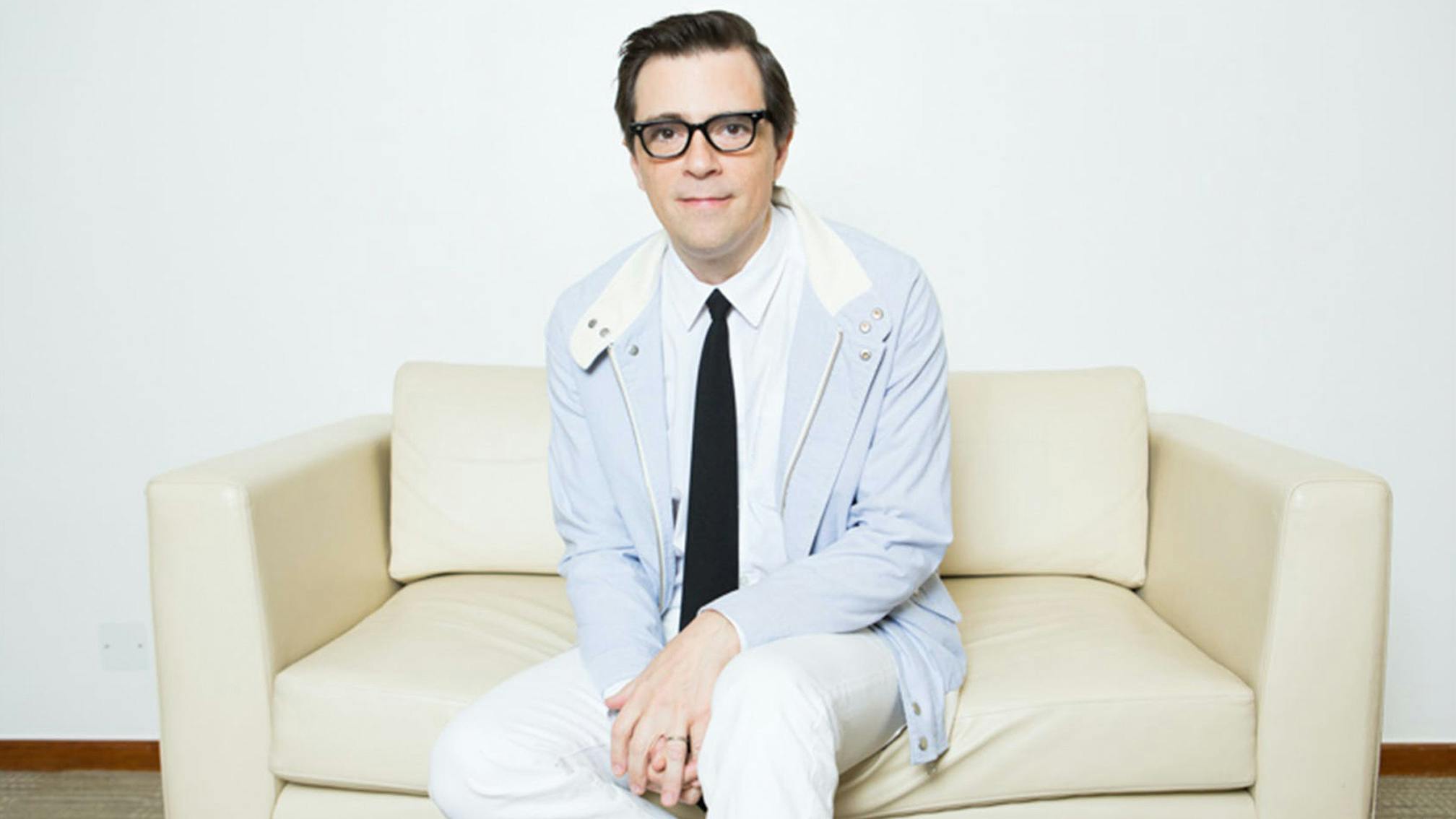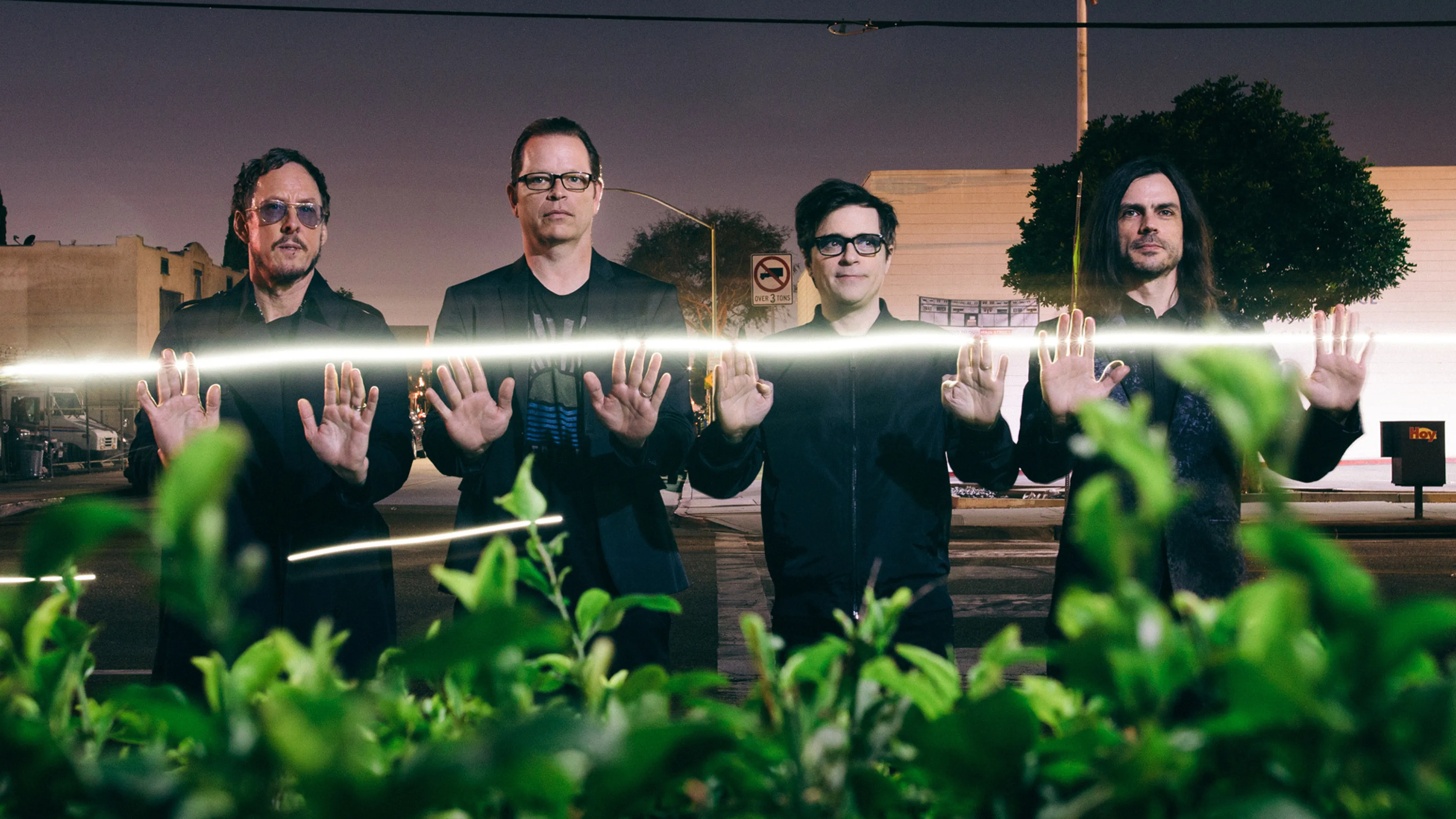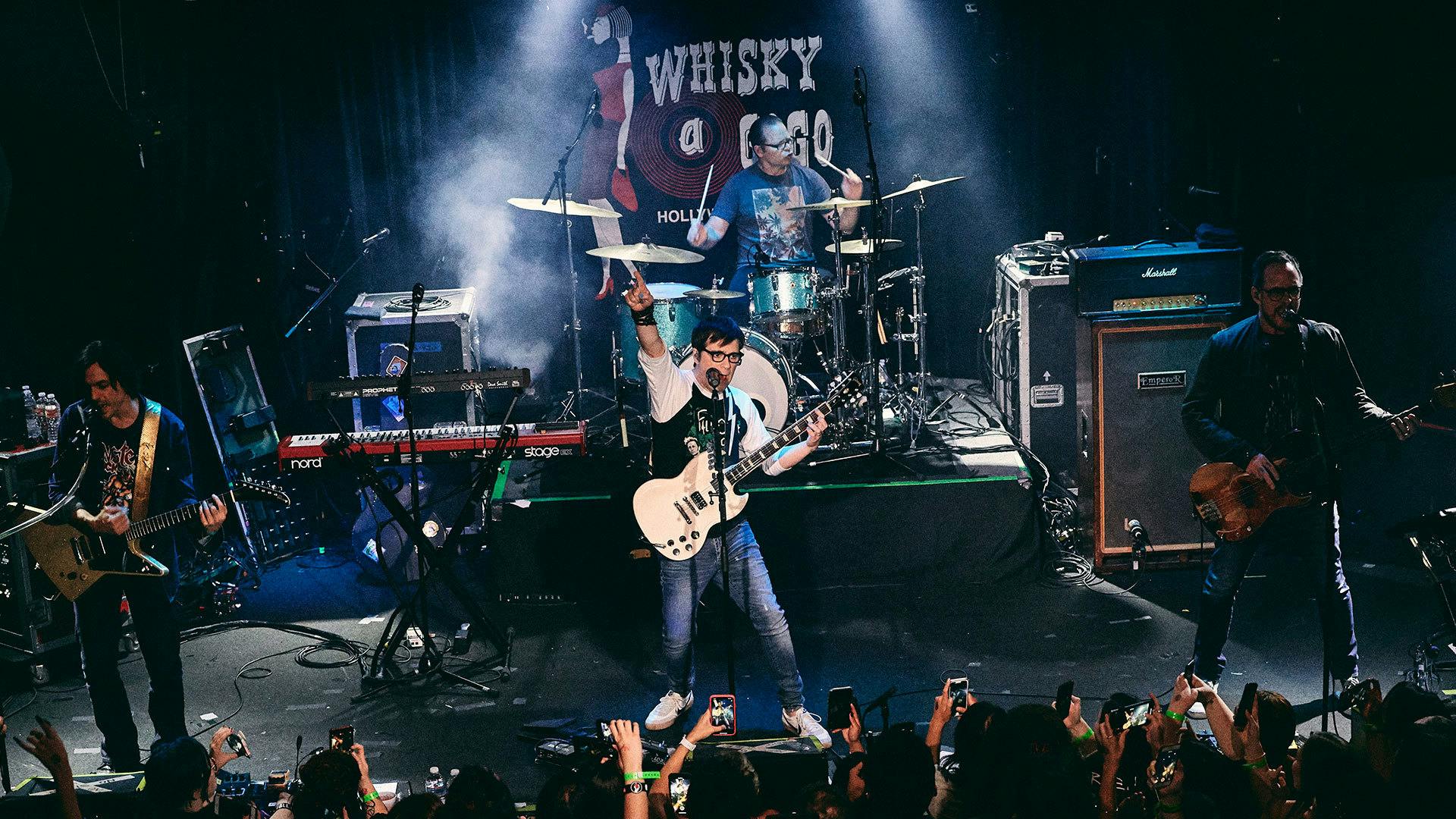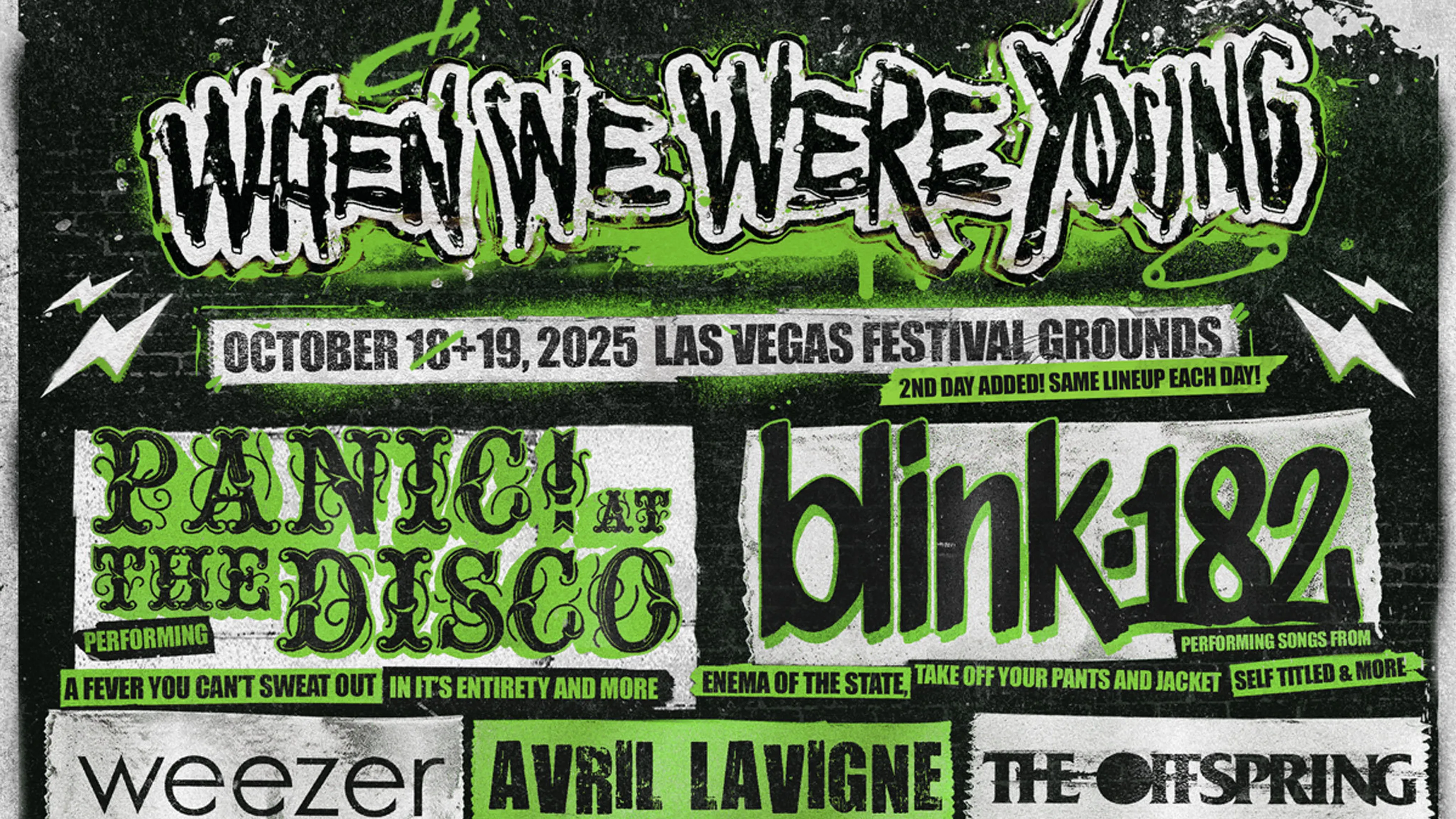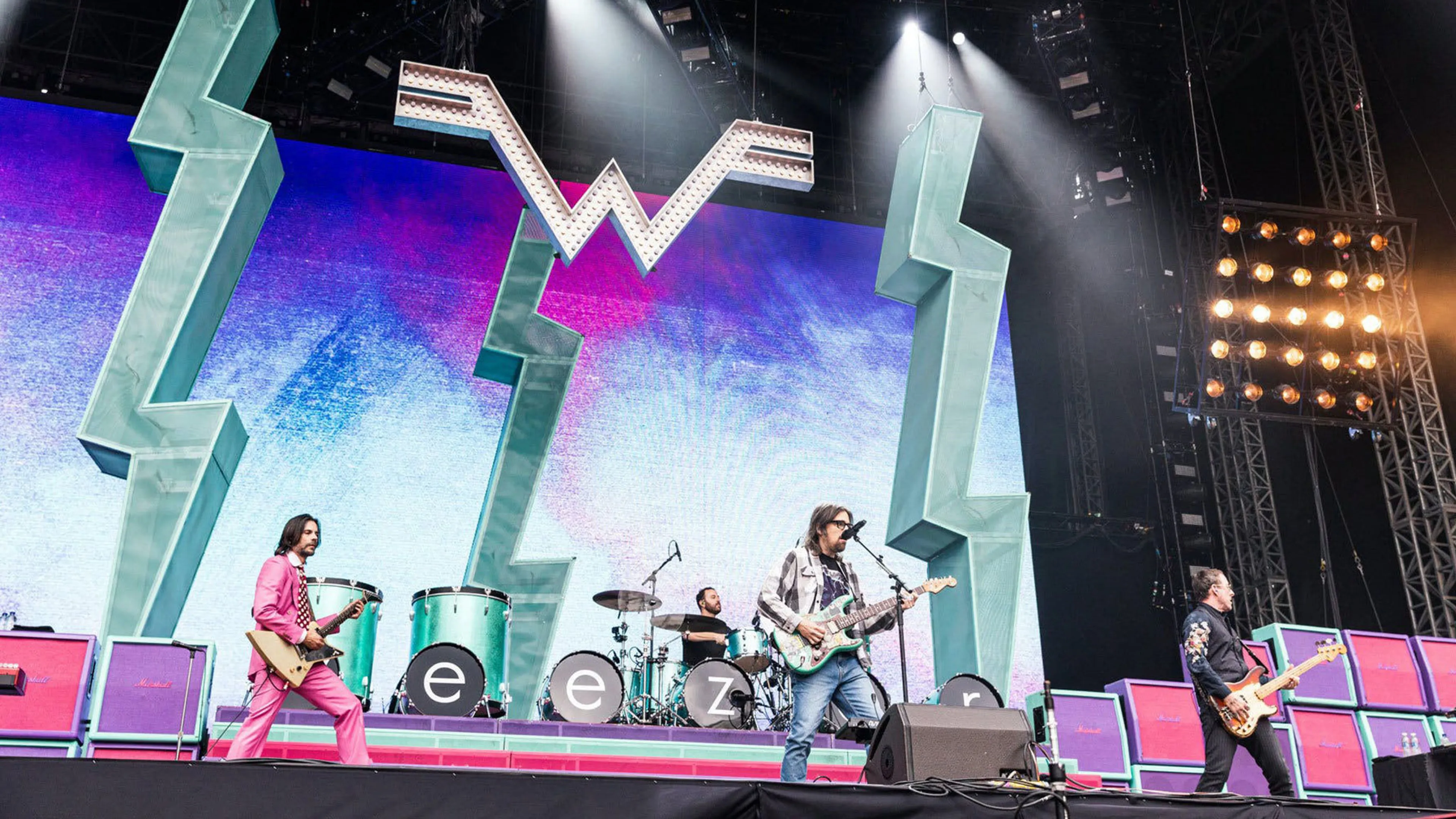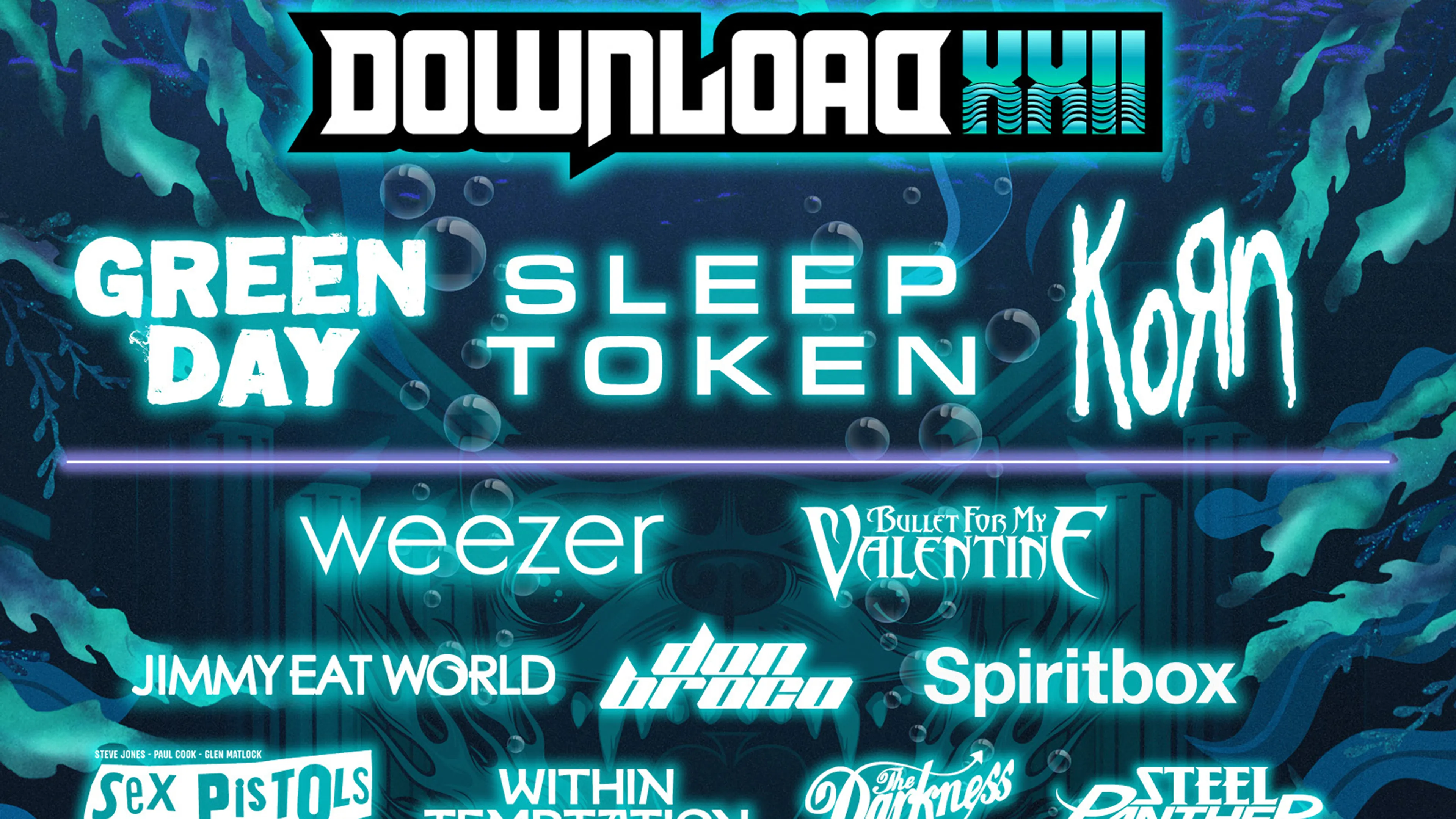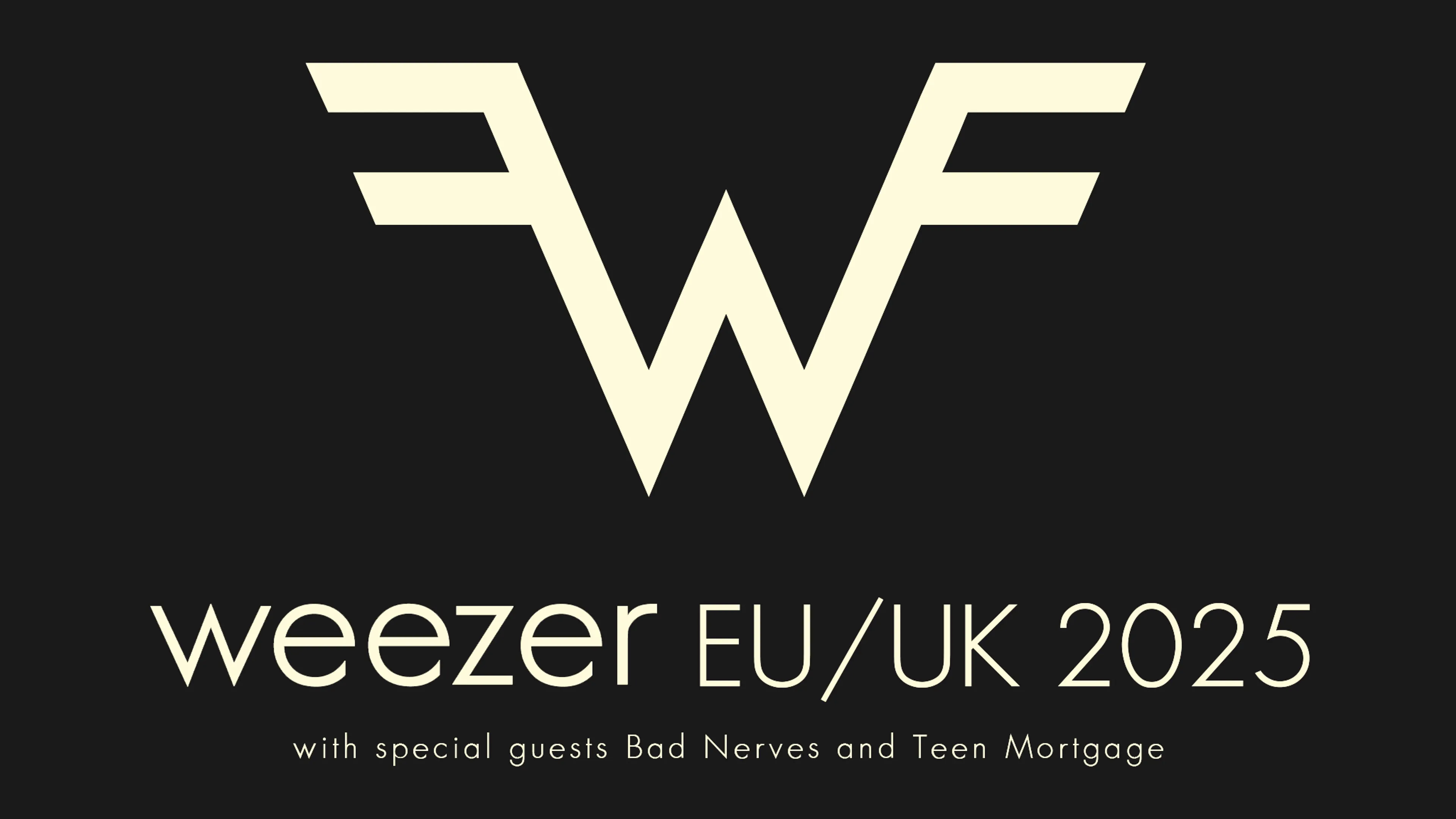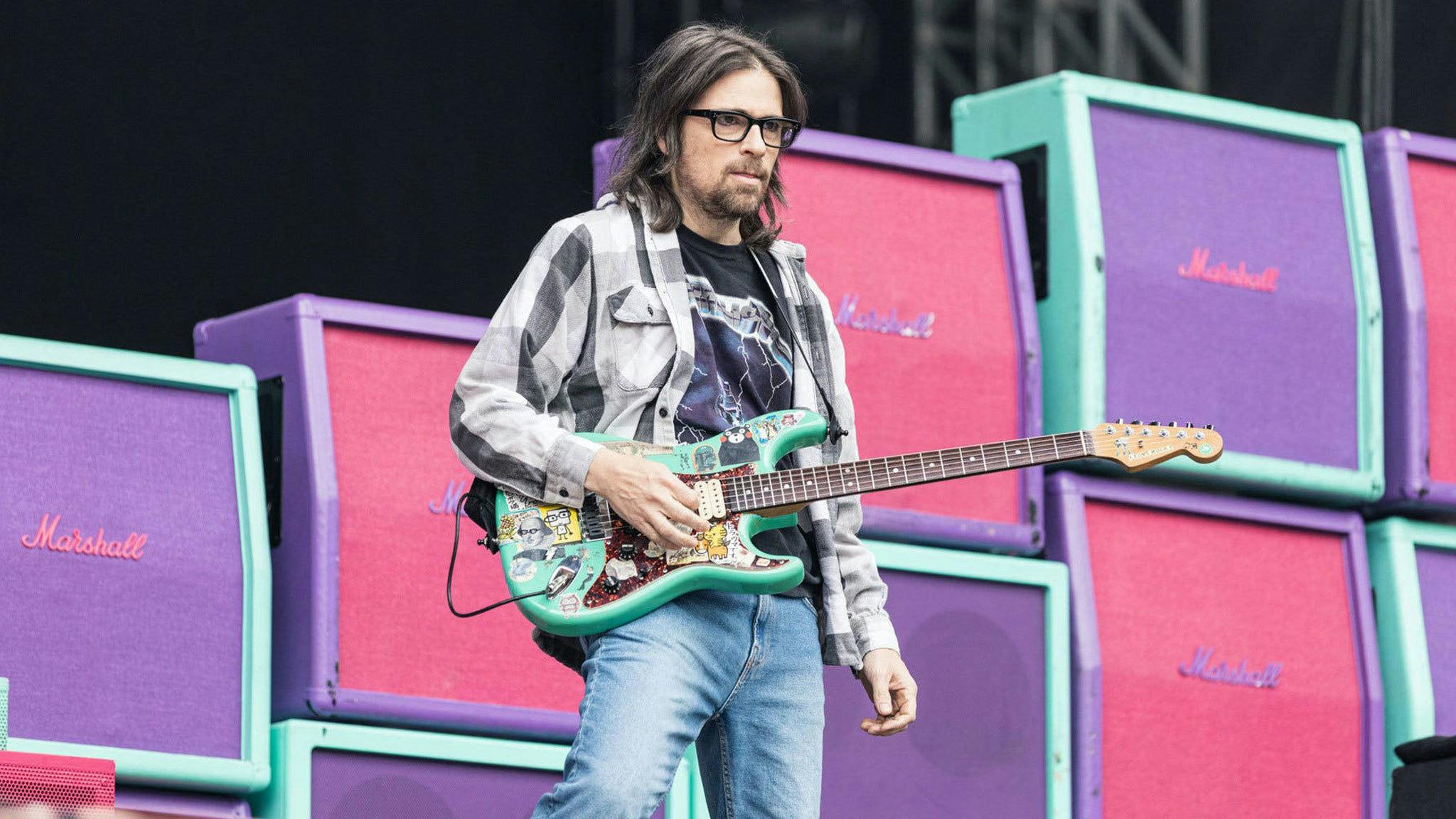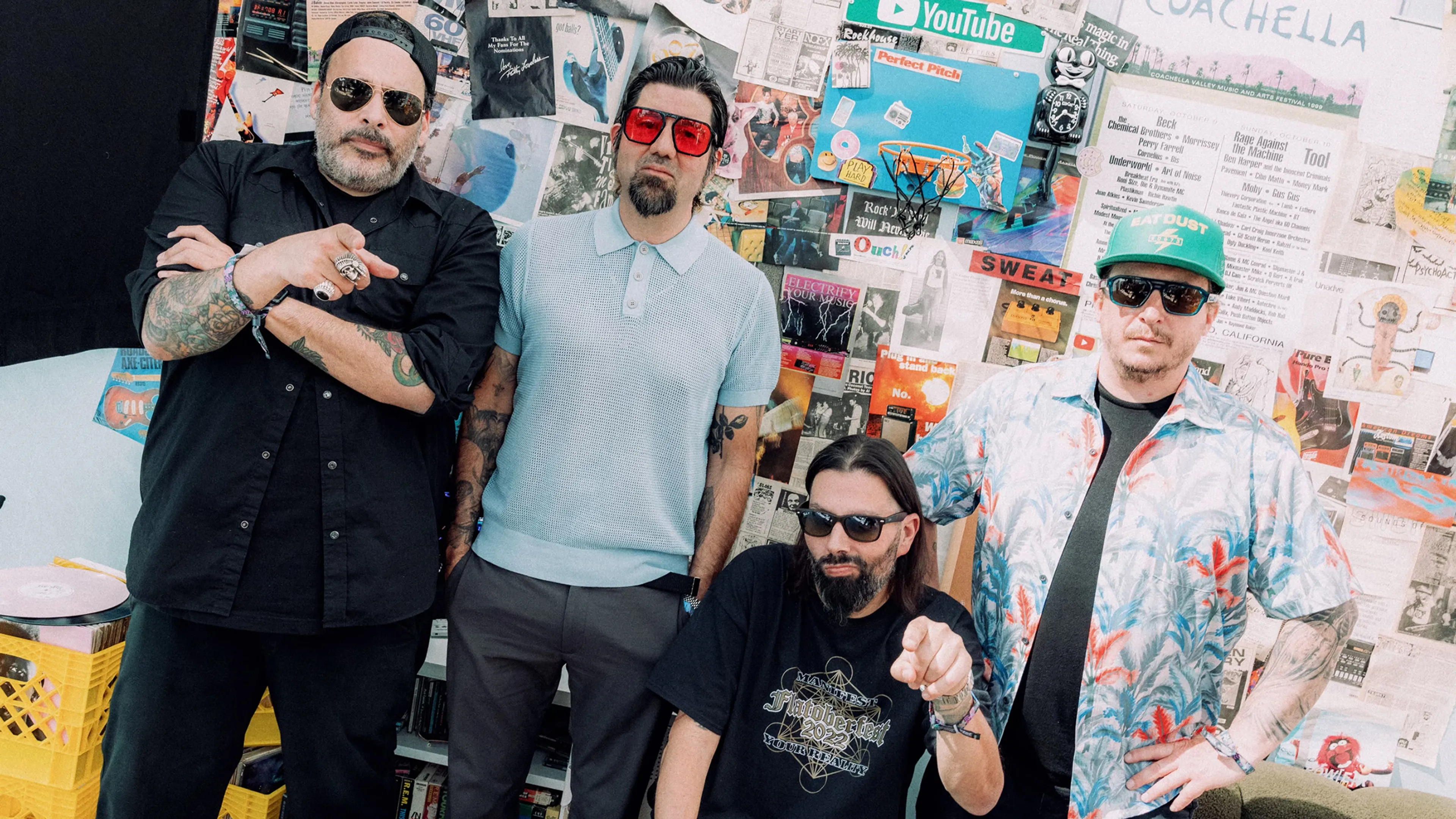How much has fatherhood and marriage helped make you happier and change your outlook?
“My daughter was born in 2007 and that’s when I immediately started writing the ‘Red’ album, which is one of our craziest records. For me as a songwriter, it was very ambitious. Not so much on the production side of things, but there’s really bold and experimental songs that I just felt were so full of ideas and excitement. I think part of that was seeing this new life come into my life, and seeing her grow and experiment with her surroundings, seeing how much little kids are in the zone and how they just do whatever comes to mind is inspiring to me.”
What’s it like being a father?
“Man, whenever you see your kids you just feel so happy and proud of them.”
Does it make you less selfish?
“Yeah, but I’m still pretty selfish (laughs). My wife and kids are out [on tour] with me right now, which is lucky as that’s not always possible. I talk to my wife and I tell her, ‘I’m really sorry. When we’re out on the road, I can’t be there for you and the kids like I am at home.’ Because all of my energy is going into the show every night, I just have to protect that during the day. She’s very supportive.”
Do you have any concerns about the world your kids might be growing up into?
“I do think about that. Not too much in a negative way, though. I think it’s normal for an old person like me to be totally mystified and confused about where things are going. I just trust that a new generation is going to rise to the occasion and be like, ‘Oh yeah, we got this.’”
So despite all the evidence to the contrary, you’re an optimist?
“I am! That being said, it is hard to know what the right guidance is to give to your kids and which way to steer them. Because when they grow up, things are going to be so different. Even if they’re not different bad, they’re different good, how do you best situate your kids to take advantage of that?”
